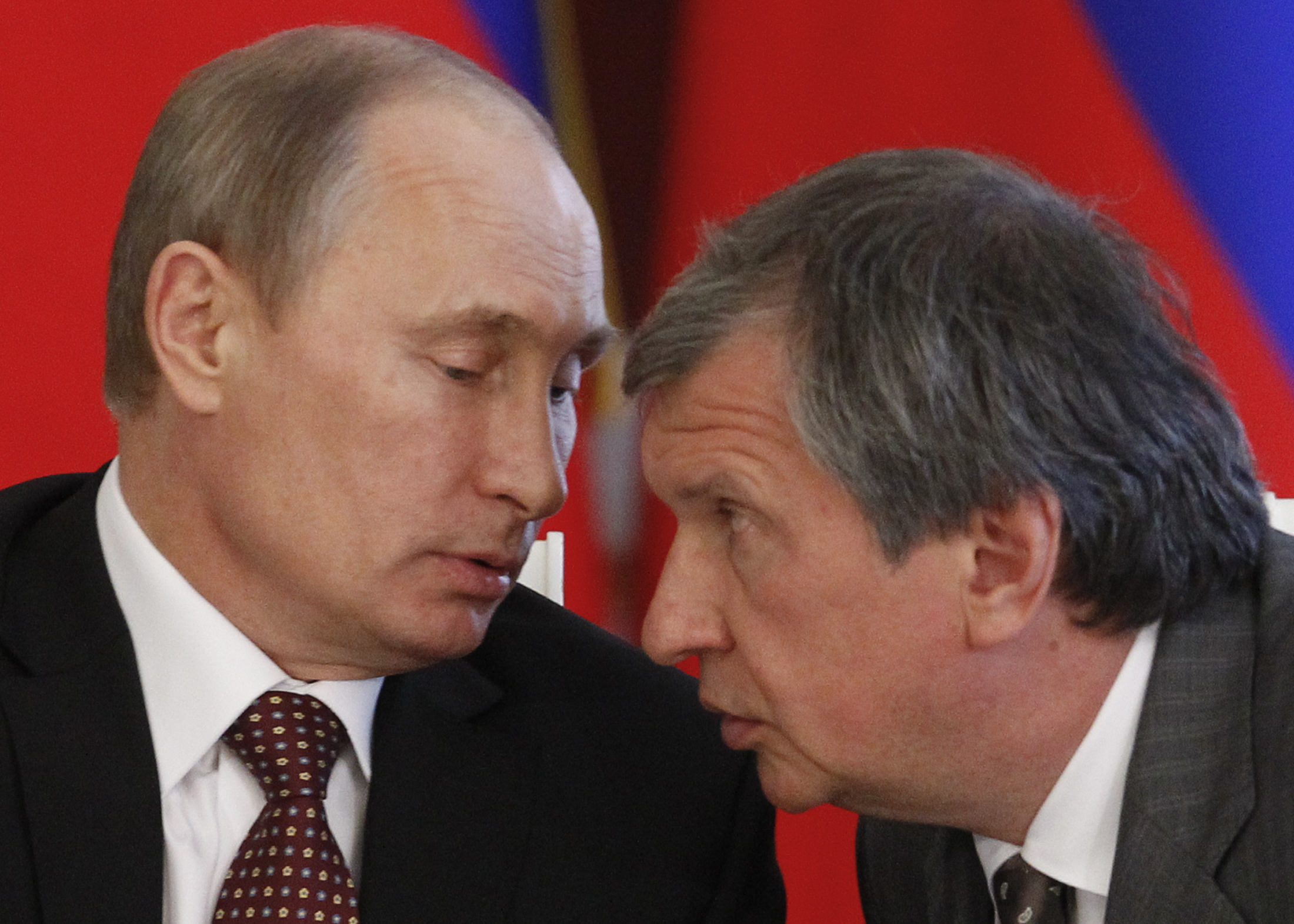Rosneft asks Russian government for renegotiated terms on offshore oil licenses

Under mounting pressure from foreign sanctions, Rosneft has asked the Russian government for renegotiated terms in all its offshore oil licenses.
Russian Minister of Natural Resources Sergey Donskoy confirms that the oil giant has requested new terms in a total of 60 licenses, newspaper Vedomosti reports. ”This is a rather long list”, the minister admits, adding that it includes not only offshore, but also land, projects. Donskoy says that it is foreign sanctions which has put the state company in trouble.
As previously reported, the third round of sanctions from the EU and USA bans western oil companies from providing services necessary for deep water oil exploration and production in Russian waters. That includes drilling, well testing or logging services.
The sanctions hits hard on both Rosneft and Gazprom, which have 47 and 65 offshore licensens respectively.
Earlier this month ExxonMobil had to pull out of its comprehensive cooperation agreement with Rosneft. The US company says it is ready to re-engage on the Russian Arctic shelf as soon as the international relations open for it. However, considering the current east-west political climate, there seems to be slim possibilities for a quick relaunch. The two companies in September and early October conducted a major exploration drilling at the University-1 well in the Kara Sea.
Support from National Welfare Fund?
In addition to the eased license conditions, Rosneft is also requesting the federal government for a 2.2 trillion rouble support from the National Welfare Fund, a mechanism originally created to support Russian pensions, Newsru.com reports.
Minister Donskoy admits that the level of obligations for the next years will be hard for Rosneft to fullfill without ExxonMobil, Vedomosti writes. In addition to its partnership with ExxonMobil, Rosneft has comprehensive agreements in Arctic waters also with Statoil and Eni.
Also Gazprom is experiencing similar problems on the shelf. The company openly admits that it is dependent on equipment and expertise from western companies in its development of offshore projects. The company might already sense trouble in its Prirazlomnoye project in the Barents Sea and further exploration drilling, like at the Dolginskoye, might prove difficult.
Meanwhile, Russia’s biggest private oil company, Lukoil, stands watching and eyes opportunities for engagement on the shelf. Lukoil has been barred from offshore Arctic projects by Russian legislators. But that might change. According to Vedomosti, the company is now signalling its readiness to take on some of the licenses in question.
Related stories from around the North:
Asia: Full steam ahead for Asian icebreakers in the Arctic this summer, Blog by Mia Bennett
Canada: Canada ponders exceptions to relief well rule for Arctic oil drilling, Alaska Dispatch
Norway: No Norwegian services to Russian Arctic offshore oil, Barents Observer
Russia: Disappointing result in Rosneft’s first Norwegian well, Barents Observer
Sweden: Swedish icebreakers gear up for Arctic role, Radio Sweden
United States: Alaska ships its first oil to Asia in a decade, Blog by Mia Bennett, Cryopolitics



